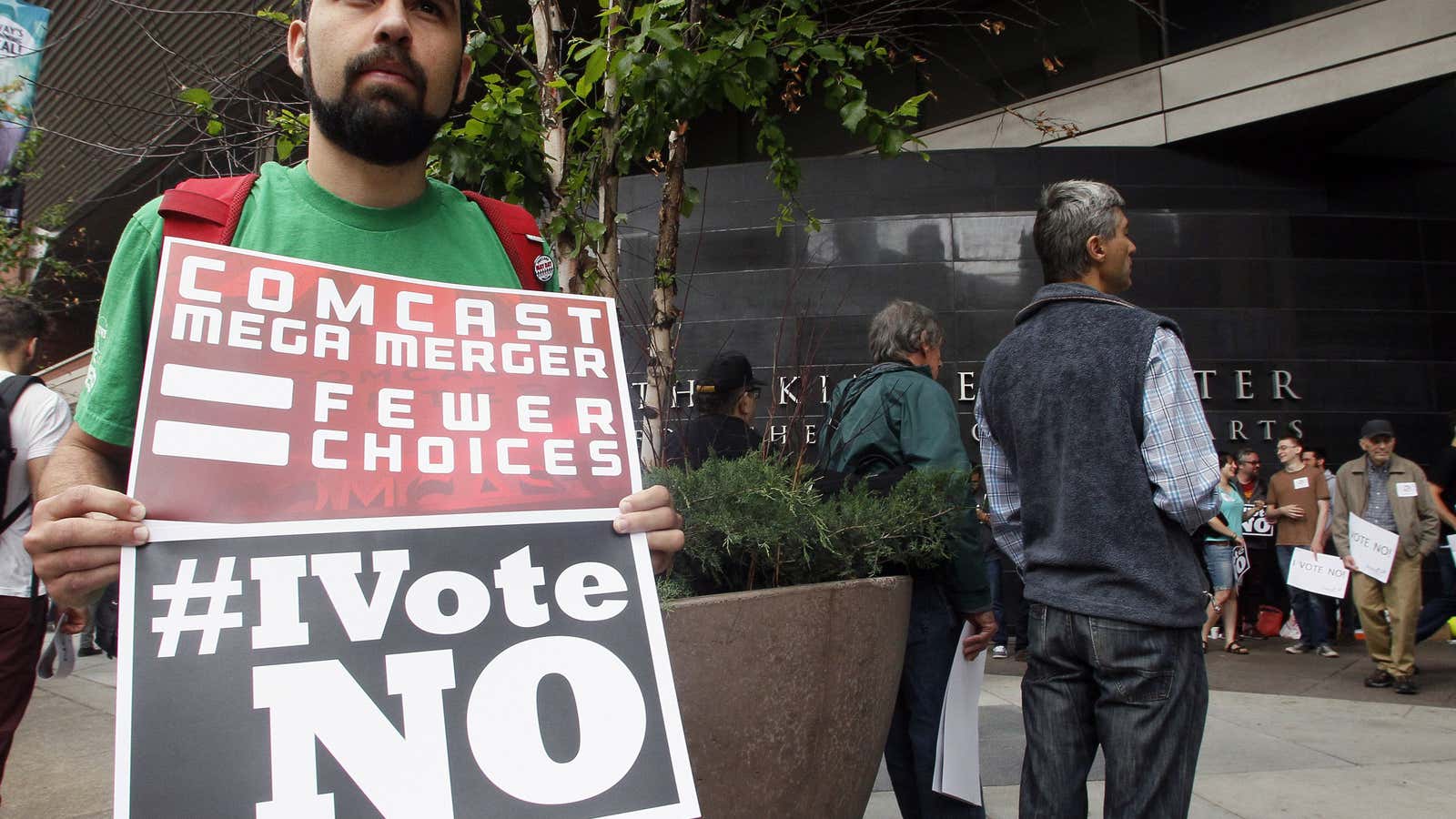This item has been corrected.
It seemed inevitable. Bloomberg is reporting that Comcast will officially abandon its $45.2 billion pursuit of Time Warner Cable on Friday, killing a deal that was contentious from the outset, to merge America’s biggest and second biggest cable companies.
This follows a steady stream of leaks suggesting a groundswell of opposition to the deal was building within both the Department of Justice and the Federal Communications Commission, the two government agencies that needed to approve it. Comcast has not responded to a request for comment from Quartz about the status of the deal.
What happens next? The possibilities are many:
- Comcast might flex its financial muscle on another big acquisition but not in the cable or wireline broadband business. Rich Greenfield from BTIG has provocatively suggested it could turn its attention to a content company like Netflix. Others have suggested T-Mobile US.
- Time Warner Cable might still be acquired by someone else, like Charter Communications, which is backed by billionaire John Malone.
The apparent collapse of the merger would be a victory for the people that have campaigned against it, including consumer advocacy groups, the Democratic Senator from Minnesota Al Franken, and Netflix.
But before the champagne is popped, it’s worth remembering that the US internet market is, regardless of the deal, still deeply uncompetitive. A December 2014 analysis (pdf) of the US broadband market by the Department of Commerce found that 44% of Americans have just two options to purchase 10 Mbps service, and 72% have just two options to purchase 25 Mbps service, the new standard speed for “broadband.”
The new net neutrality rules approved by US telecom regulators this year should dampen abusive practices by internet service providers. But the US has fallen short when it comes to finding ways to introduce more competition to a sector that demands significant capital investment and lends itself to high barriers of entry. Comcast is still the 900-pound gorilla of the internet world, and its failure to merge with Time Warner will probably just spur further consolidation in the industry.
Recipes to improve the status quo are as numerous as they are politically volatile. The Obama administration wants to give more cities the option to build out their own broadband networks, alone or in partnership with private companies. On the progressive side, schemes to “unbundle” local networks and allow more players into the last mile of a network at low, regulated prices, as is common in Europe, face deep (and deep-pocketed) skepticism from ISPs. The companies say they’ll do better left alone by the government, and libertarian policy wonks say that the solution is going after regulatory road-blocks to local competition.
Correction: An earlier version of this post said the price tag on the proposed deal was $42.5 billion. It should have read $45.2 billion.
